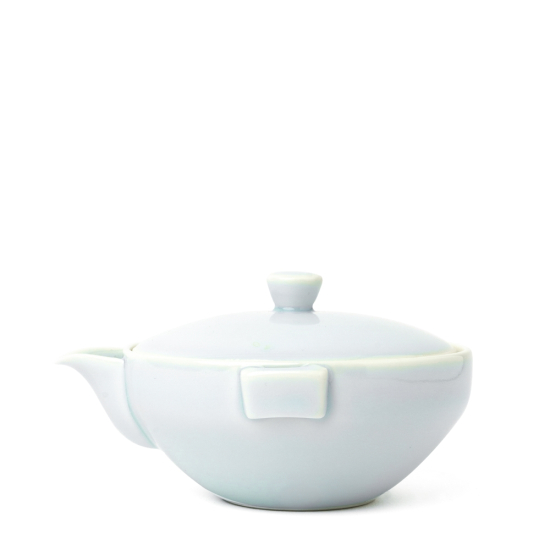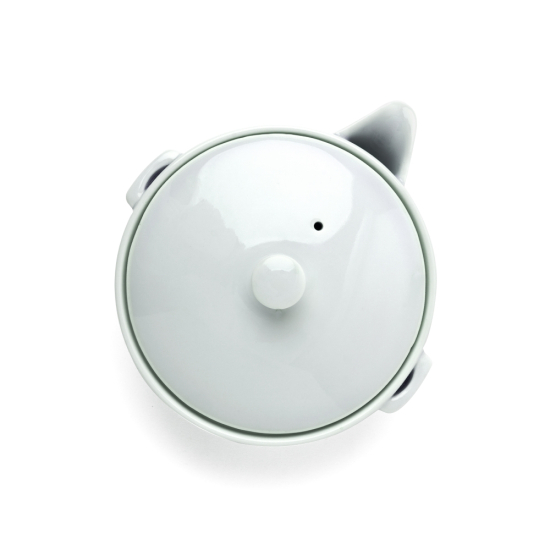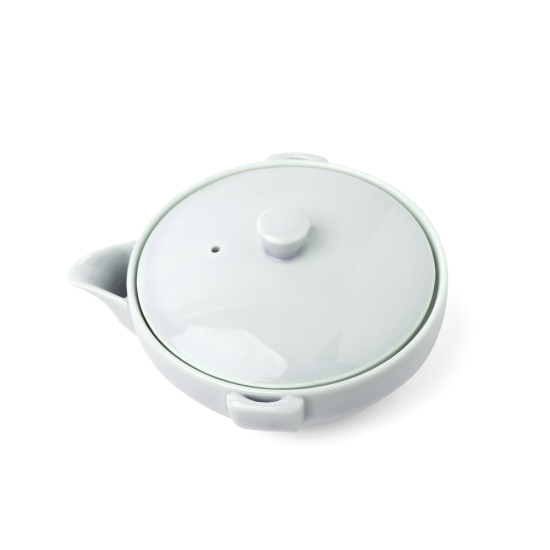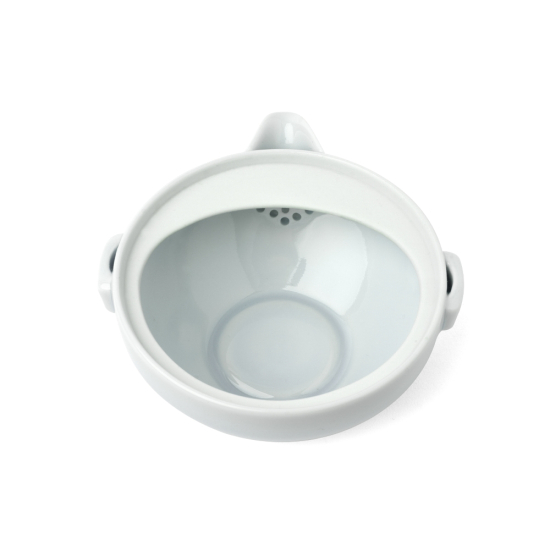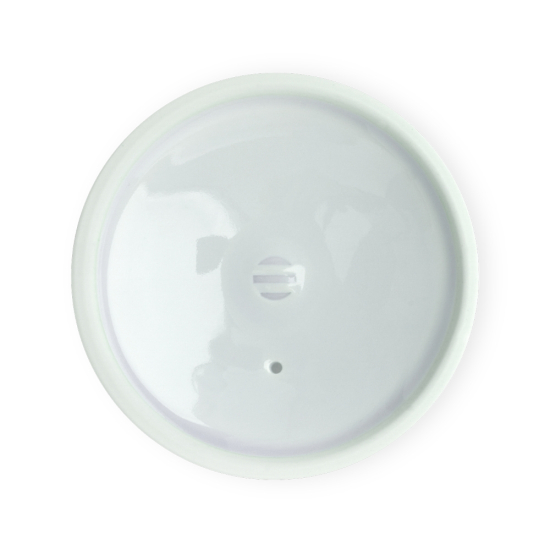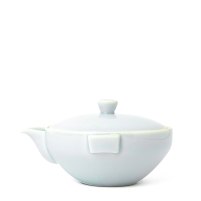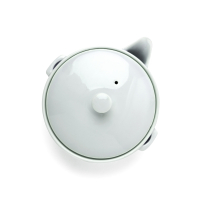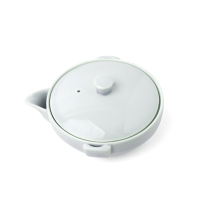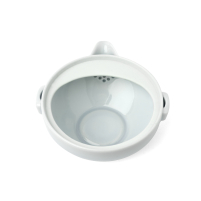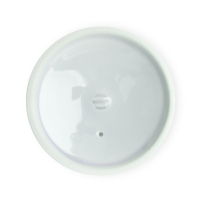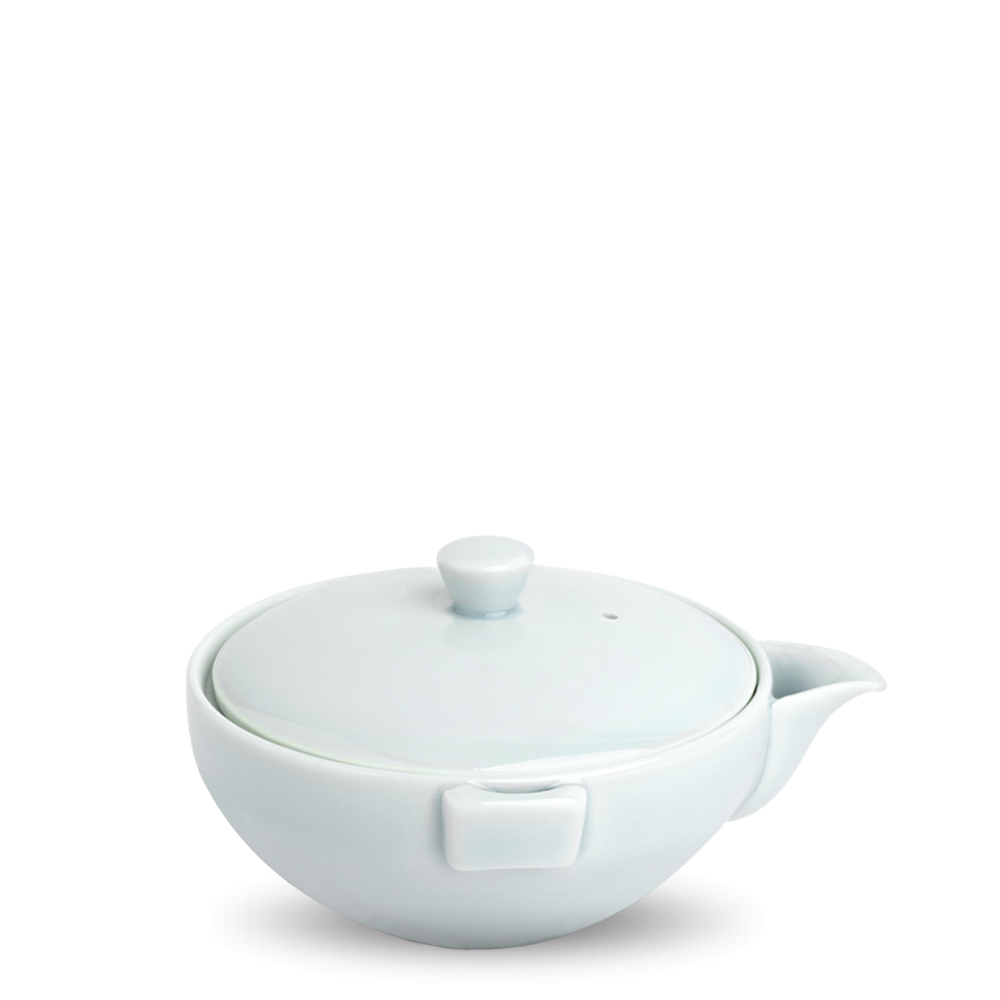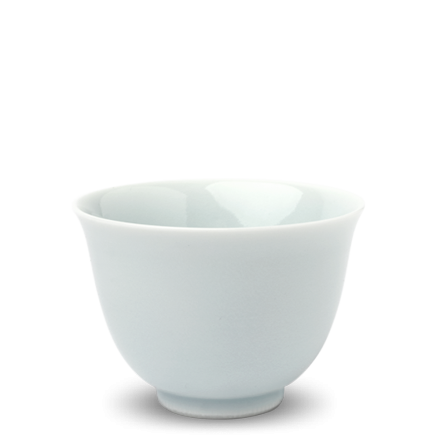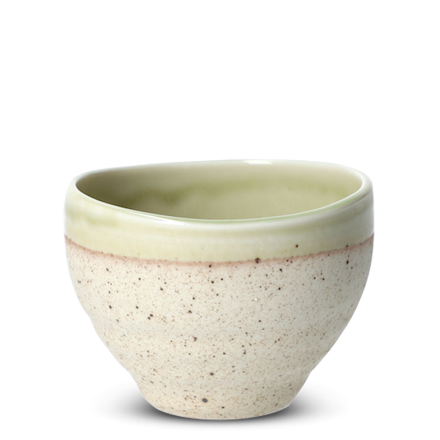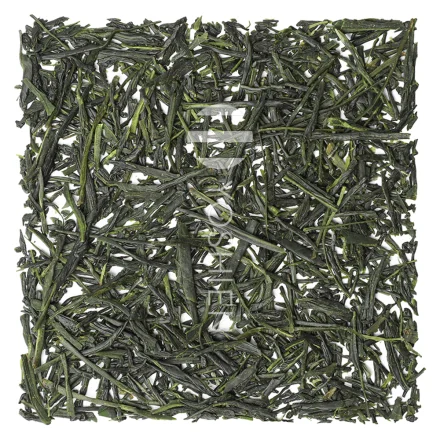Hasami-yaki is a style of pottery from the eponymous town of Hasami in Nagasaki prefecture, best known for durable, everyday porcelain tea- and tableware. The history of Hasami wares date back to the turn of the 17th century when skilled Korean potters were captured and brought over following the Japanese invasions of Korea at the end of the 16th century. Using their porcelain making know-how, the Korean potters soon identified kaolin clay near Arita, close to Hasami, from where the production of domestic Japanese porcelain began.
Hohin Hasami
Porcelain
Yoshi en
SKU
7976
Our everyday Hasami-yaki porcelain Hohin teapot custom-made for us in Japan, with a beautiful bluish-white glaze and a perforated strainer at the spout. Perfect for brewing one or two cups of Gyokuro or Sencha as well as other delicate Japanese green teas that require steeping at low temperatures. Pair with our matching Yoshi en teacup.
| Item | Hohin, bluish-white |
|---|---|
| Origin | Hasami, Nagasaki, Japan |
| Dimensions | Ø9.7cm x H6.5cm |
| Volume | 150ml |
| Material | Porcelain |
| Care | Dishwasher safe |
In stock



